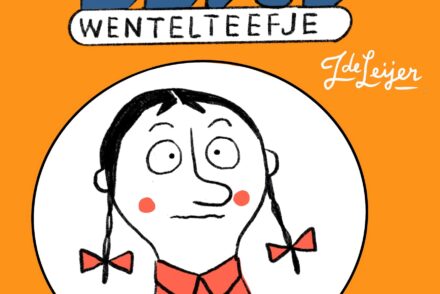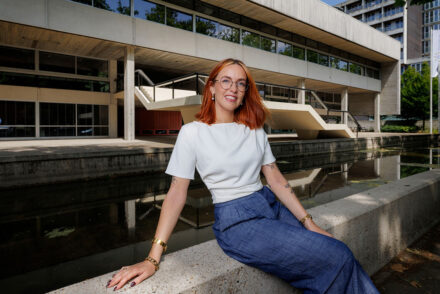Hugo Snijders on his timeline: ‘Politically, I find algorithms frightening’
Algorithms guide us through the endless maze of the internet. One person sees the latest sneakers and conspiracy videos, while another gets scientific articles and cat videos. This month, we dive into the bubble of Hugo Snijders (25), a master’s student in Marketing Analytics.

What’s your most remarkable experience with algorithms?
‘A while ago, I unexpectedly ended up in the “Christentok” algorithm. I saw a video from a Christian camp where they made a remix of the song “Drank en drugs,” but titled it “Bible and Jesus.”
‘Although I’m an atheist, these videos kept coming, and a few of my friends got them too. It felt a bit like Christian indoctrination, but we still shared the videos because we found them funny. Now I can’t get rid of these church-related videos. It’s like the church is heavily investing in social media marketing.’
What content would you have preferred not to see?
‘Once, I got a video of Thierry Baudet doing a drinking game. After that, I was bombarded with content about him, which I really didn’t want.
‘The same thing happened with Andrew Tate. The extreme and bizarre content sometimes keeps me watching out of curiosity. I think TikTok assumes this content fits men aged 16 to 26.’
Are you in a filter bubble that mainly confirms your own opinions?
‘I don’t consciously notice it, but I suspect I am. I tend to believe that the content I see is the “truth,” which reinforces my views.
‘During my bachelor’s in Communication and Information Sciences, I learned a lot about filter bubbles, which helps me stay critical. Still, I notice that being in a bubble online is almost unavoidable.’
Do you ever talk to others about their bubbles?
‘A friend of mine was really excited about a course from some crypto “guru.” She thought she could earn €40,000 in a week. I was shocked that people still fall for such nonsense.
‘She proudly showed me a video of a rising graph, which I could have made myself. Why would someone who found a market gap want to share it with everyone? I had my doubts right away, but she didn’t.’
Do algorithms change what you watch and listen to?
‘Algorithms have a big influence on what I watch and listen to. I often click on the first video I see on YouTube and then fall into an endless loop of nonsense videos, like trick shots or something similar.
‘With films, I put in more effort and use IMDb (Internet Movie Database) to find the best ones. I find Spotify’s algorithms the most useful. They help me discover new music through the “time capsule” or song radio features.’
Do algorithms affect your online experience mostly positively or negatively?
‘When it comes to entertainment, I find algorithms mostly useful. But politically, I find them frightening. The way polarizing and extreme videos are pushed, like those from Andrew Tate, can be problematic.
‘As long as you don’t take what a guy with a cigar in his mouth says next to his Mercedes too seriously, you’re fine. Unfortunately, some people do take his 1950s ideals to heart.’






